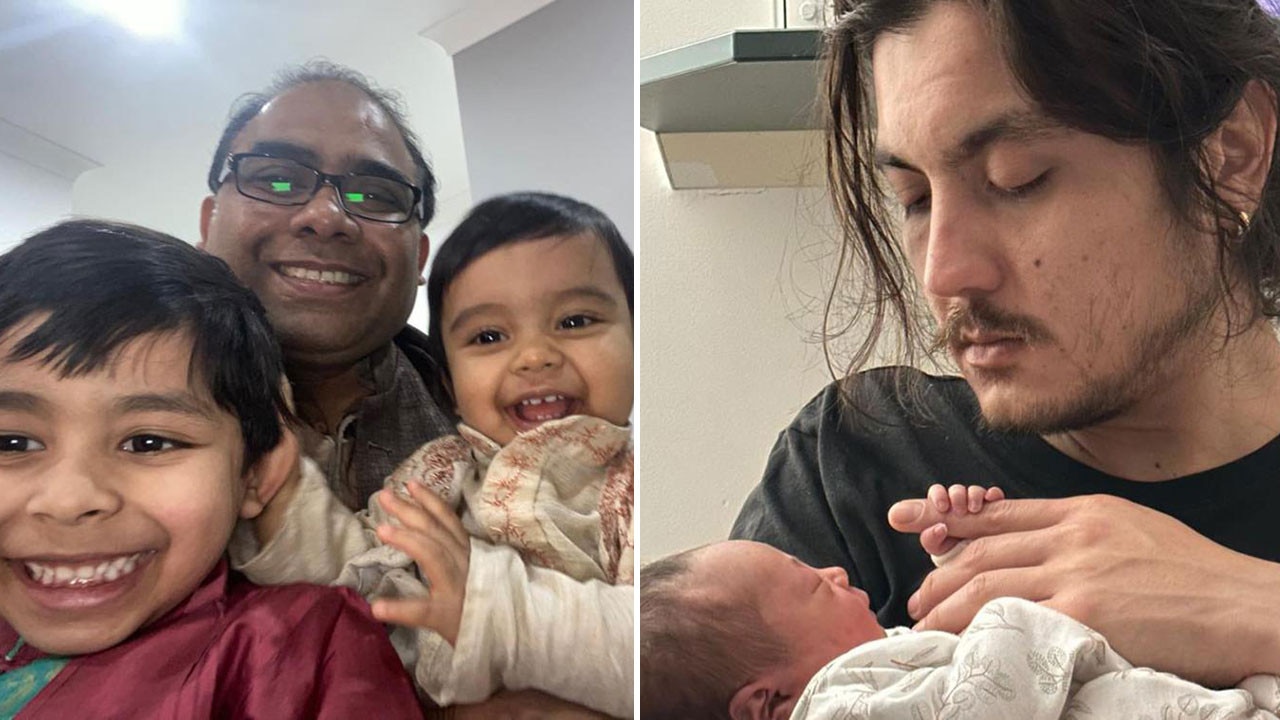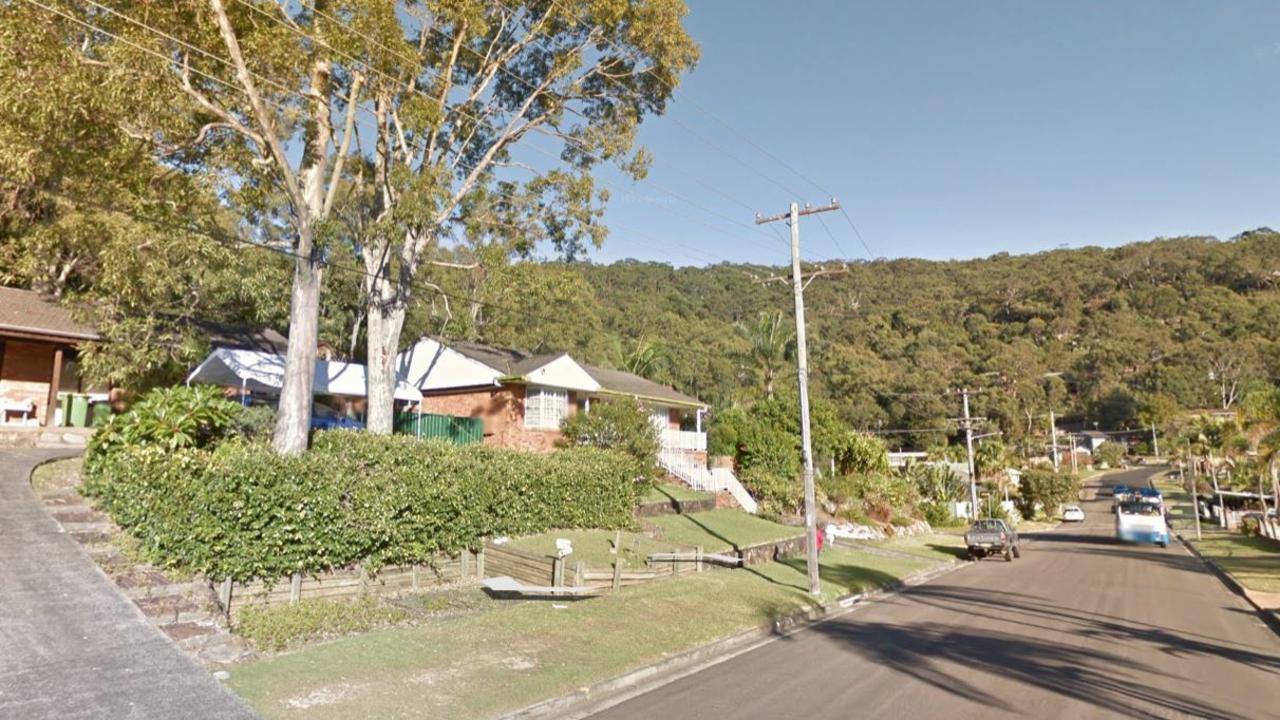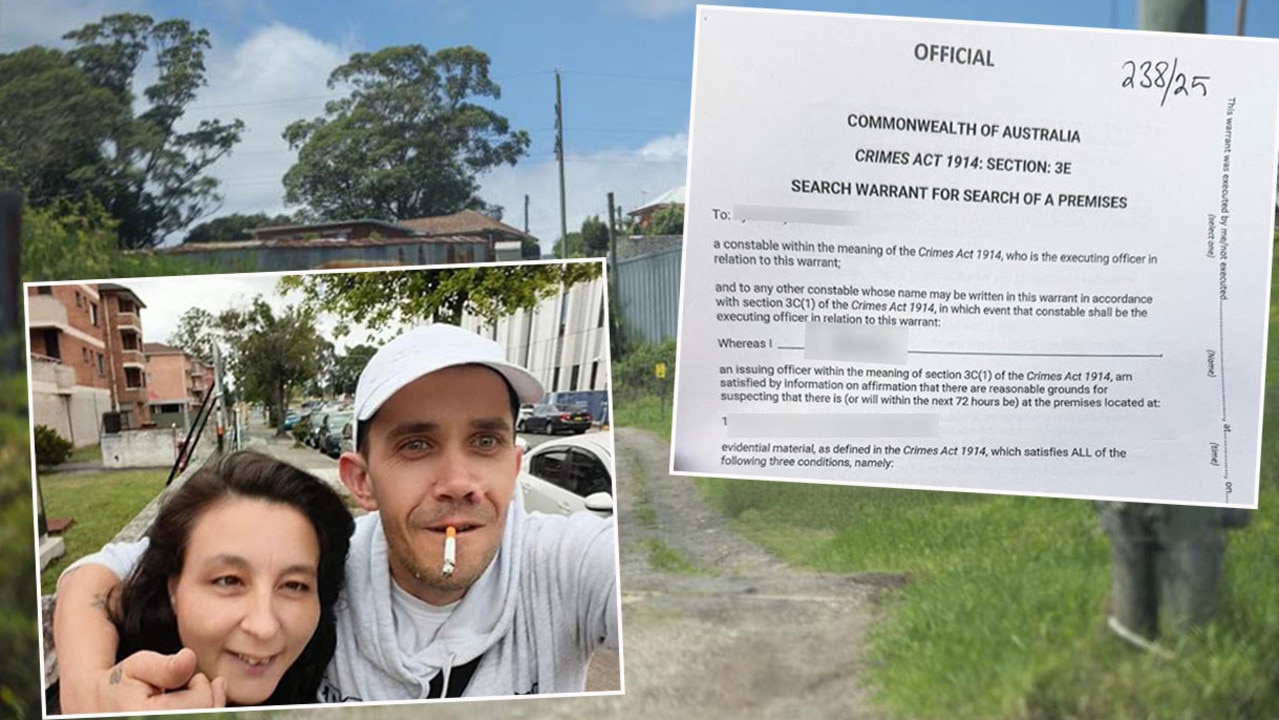How Saskia the rescue dog saved another dog’s life
Not all heroes wear capes, some wear collars. Meet Saskia, the rescue dog who became an emergency blood donor to save the life of a friend in need.
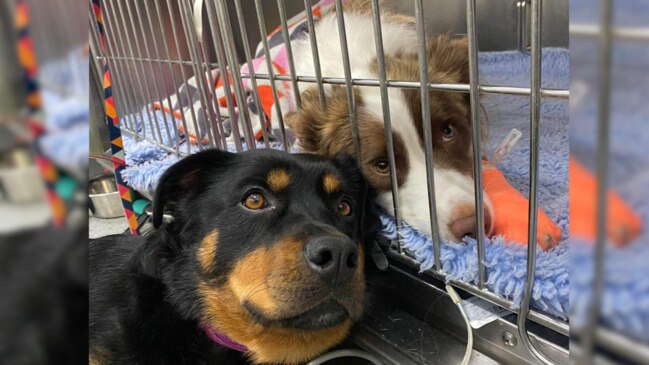
NSW
Don't miss out on the headlines from NSW. Followed categories will be added to My News.
Not all heroes wear capes, some wear collars.
Meet Saskia, a rescue dog who became an emergency blood donor for the first time this month to save the life of a friend.
One-year-old Tashi was close to death after his leg was amputated following a hit-and-run accident and the stump became badly infected.
Rushed to Austinmer Veterinary Hospital on June 1, the young border collie’s red blood count was dangerously low and his owner Jane Ringstad feared the worst.
The animal hospital has a list of potential dog donors but there wasn’t time to take to the phones.
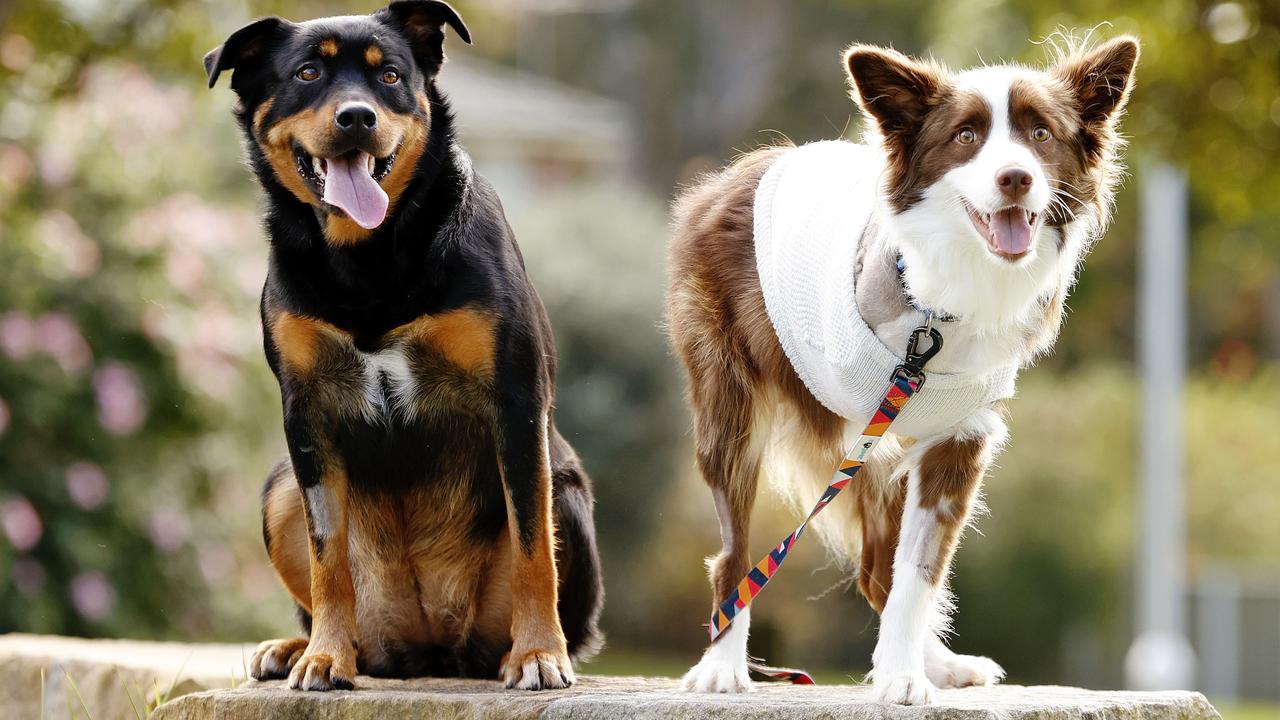
Sweet-natured Saskia, a mix of rottweiler, kelpie and border collie who belongs to vet Dr Simone Armstrong, spends her days at the clinic.
“She was the right age and size for a canine blood donor and was fit and healthy.
“It was life-threatening for Tashi, his red blood count was severely low — he needed a transfusion and he needed it asap,” Dr Armstrong said.
“Here at the vet we have a bit of an informal blood donor list as we need to give dogs blood transfusions whenever there’s the risk of excessive blood loss — for certain complex medical cases, after snake bites, after they’ve been hit by cars.
“But this was the middle of the day, most of our donors’ owners were at work, we didn’t have time.
“Saskia fit the criteria, she did phenomenally well and she saved Tashi’s life.”
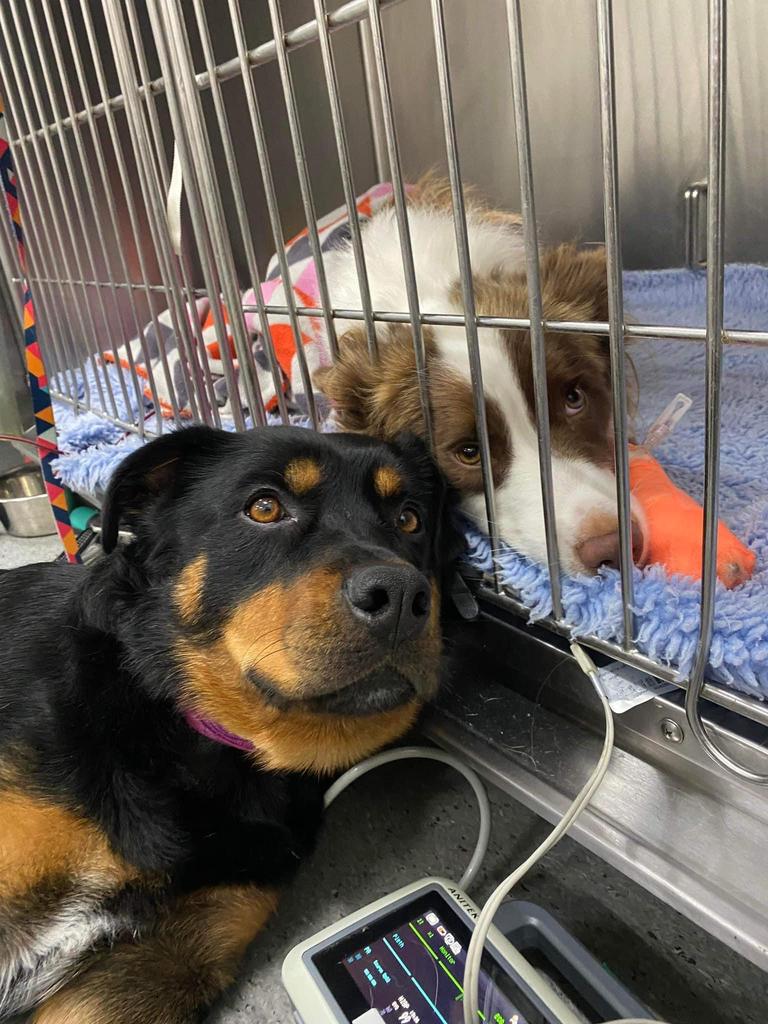
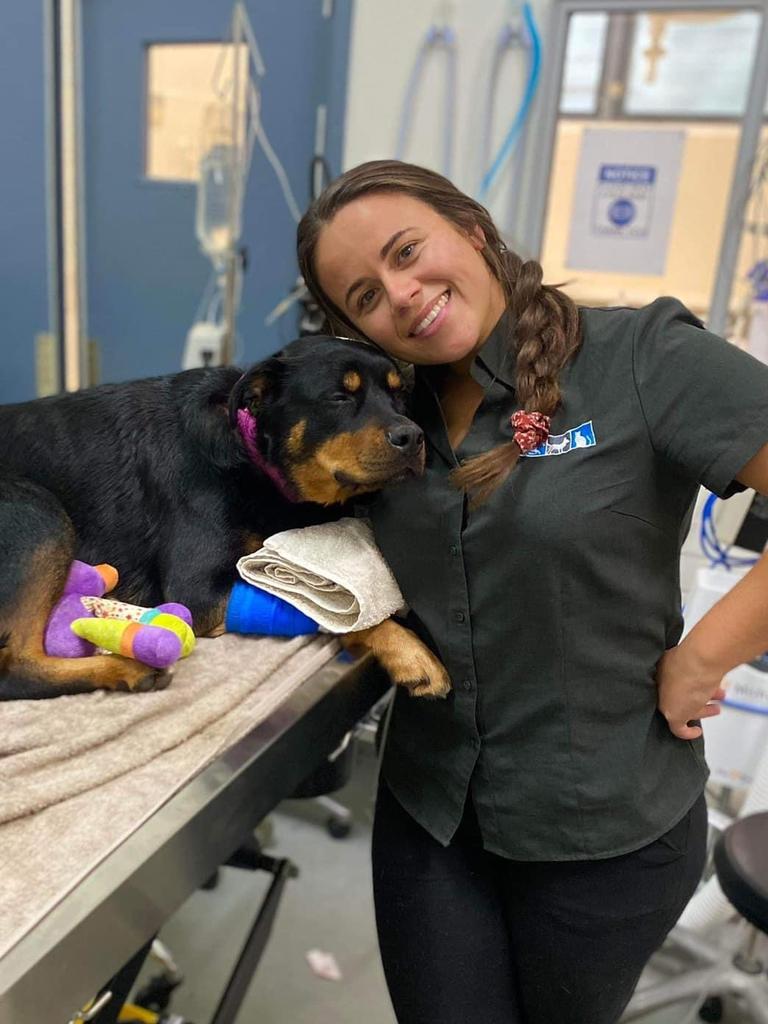
Dr Armstrong said it highlighted the need for canine blood donors at vet hospitals everywhere, and encouraged pet owners to speak to their local vets.
As with human blood donation, the task is safe and relatively painless.
Saskia was lightly sedated, 500ml of blood was taken in around 10 minutes, and she was allowed plenty of rest and rehydration.
Yet where she felt most comfortable was lying next to Tashi as he received his transfusion.
“It was a very emotional day — everyone at the clinic is very attached to Saskia, she’s our emotional support dog and that day she became Tashi’s emotional support,” Dr Armstrong said.
“She laid next to him as he had the transfusion, even giving him a few kisses through the cage. When he started to recover he was unsteady on his three legs, but he stood up when he saw Saskia and would go outside with her for toilet breaks.
“When Tashi’s family came in and saw them both there were lots of tears.
“They’ve become blood brother and sister for life and we’ve planned for them to catch up and be in each other’s lives.”
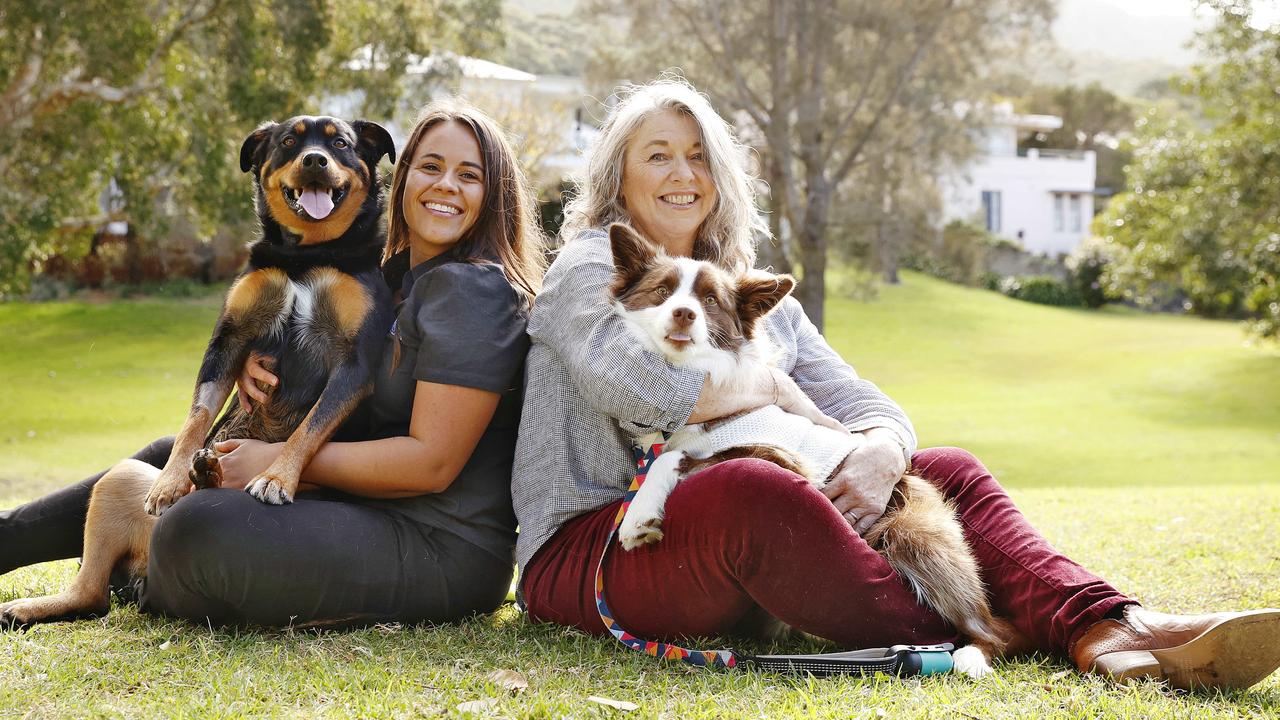
Saskia, now three, grew up with a homeless man, before he handed her in to get veterinary attention. That vet, Dr Armstrong, had a rottweiler at home, and once she laid eyes on Saskia, knew she had a new best friend.
“She was timid at first and needed some rehab but she’s always been an unreal dog,” Dr Armstrong said. “I always knew she was special.”
Tashi, too, has been rescued.
Ms Ringstad first read about his plight on an Illawarra pet rescue site. He had been taken in after he was surrendered by his previous owner after he had been hit by the car.
Ms Ringstad donated for his initial surgery at another vet clinic about seven weeks ago and then adopted him just five weeks ago.
But after infection set in post-surgery, she took him to her local vet.
“We’ve had two border collies and lost our last one earlier this year and vowed we’d not get another dog, but we fell in love with Tashi the day we got him,” the Austinmer resident said. “It was touch and go — the blood transfusion saved his life.
“The vets were so wonderful and caring, and went above and beyond.
“We’re so grateful, and when we saw the dogs together, they’re just so happy in each other’s company.
“Tashi’s recovering well and we’re adjusting to life with a three-legged dog.”
Dogs can donate blood every eight weeks, however most vets manage blood banks carefully due to shelf life and will only ask for donations when a high-risk surgery or emergency occurs.
Originally published as How Saskia the rescue dog saved another dog’s life



